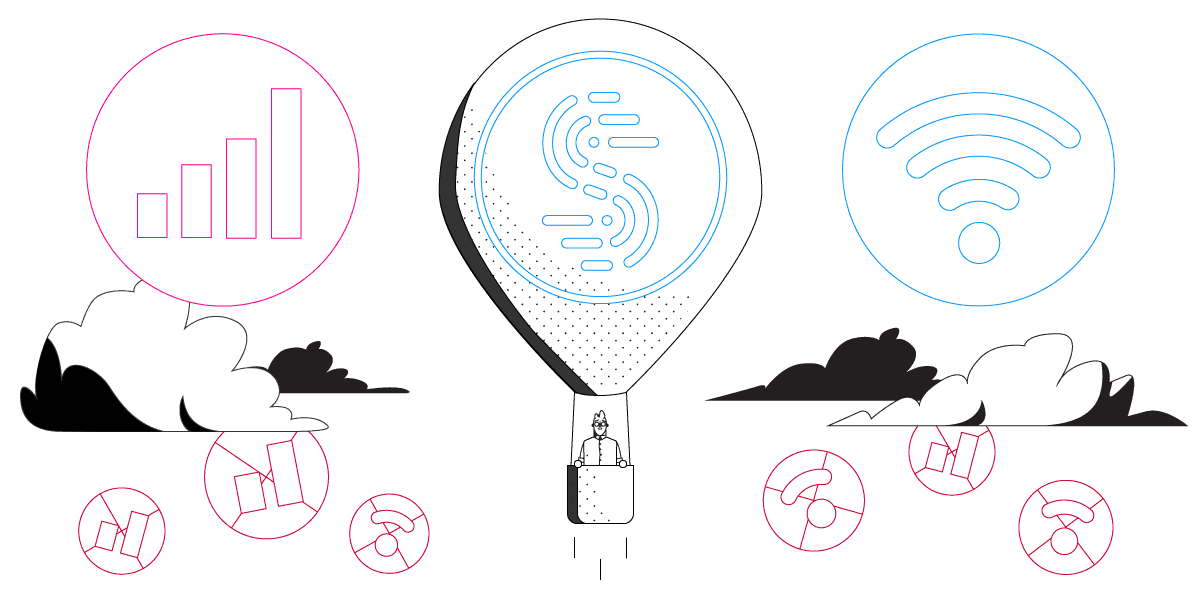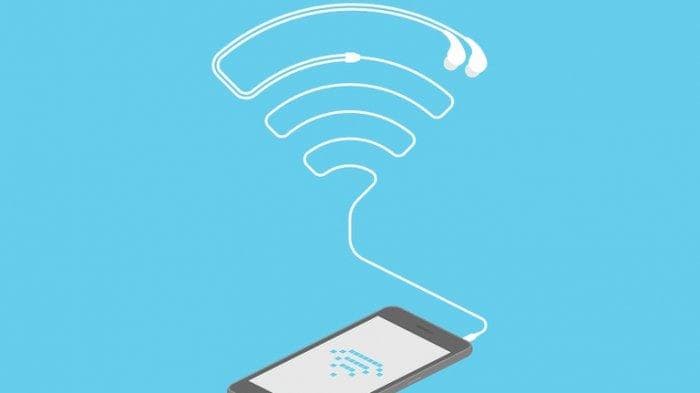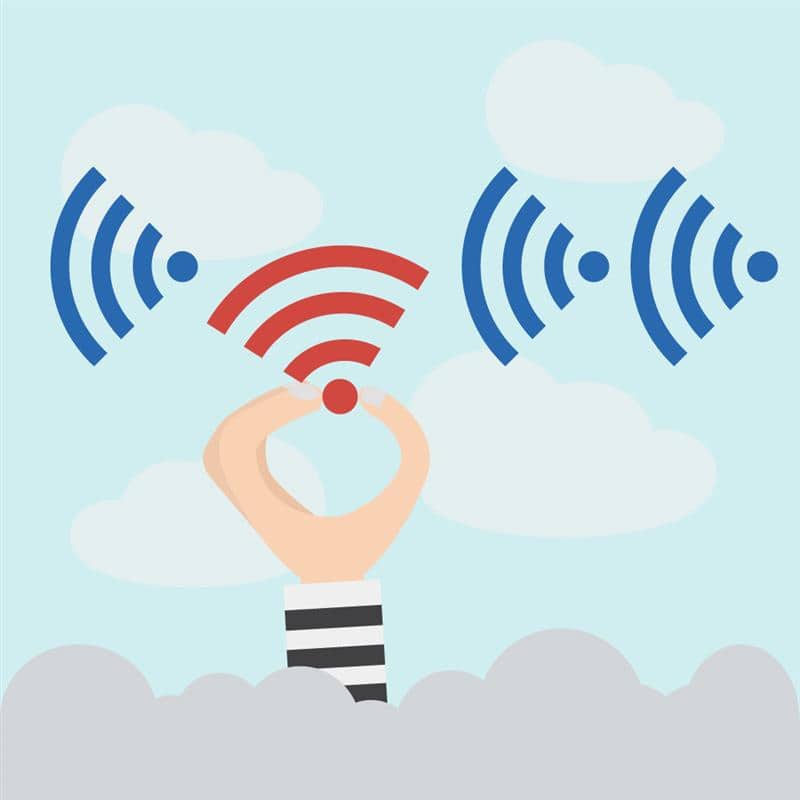Using crypto wallet on public Wi-Fi unlocks digital freedom but comes with traps. Let’s chat safety. Ever tapped into public Wi-Fi to check your crypto balance? It’s like tightrope walking without a net. Public Wi-Fi spots are playgrounds for sly hackers seeking to swipe your digital coins. This very moment, someone could be eyeballing your crypto moves. You need a smart plan.
Here, we dive into tips and tech-armor to keep your digital wallet in check and your peace of mind intact. From encryption savvy to picking the right wallet, learn the secrets to shield your crypto in the wild web-world. Buckle up, because we’re zipping through a no-fail guide to secure your hard-earned virtual cash on public networks. Get ready to bulletproof your digital dollars.
The Rise of Digital Wallets and Public Wi-Fi Security
Understanding the Risks of Public Network Crypto Transactions
Let’s talk shop about digital wallets and Wi-Fi dangers. Ever thought, “It’s just coffee shop Wi-Fi, it’s safe, right?” Wrong! Hopping onto free Wi-Fi with your digital wallet is like swimming in shark-infested waters. Why? Hackers love these spots. They watch and wait to snatch your crypto if you’re not careful.
So, what’s at stake? Your hard-earned digital cash. Cyber baddies can sneak a peek at your transactions on insecure public networks. They can spot your wallet’s private keys or snatch your financial info. Yes, it’s scary, but I’ve got your back.
Locking down your wallet beats losing sleep over stolen Bitcoin or Ethereum. First things first—never, and I mean never, start a crypto transaction in a public place without safeguarding your steps. Your best buddies in this mission are VPNs and encryption. They’re like your digital invisibility cloak. Ready to use them? You should be. They keep your money moves hidden from prying eyes.
Implementing Proactive Measures for Digital Wallet Safety
Alright, gear up for some serious digital defense advice. Digital wallets need armor—it’s a crimefighting suit for your crypto! Picture this: you’re about to buy some cool digital art using Ethereum. But hold up! Are you on a public Wi-Fi? Pause and protect. First, flip on your VPN; this makes you a ghost in the machine. No hacker worth their salt can touch you now.
But wait, there’s more. Add in two-factor authentication. It’s like having a secret handshake only you and your wallet know. Even if someone gets your password, they can’t get past this duo of security without your secret nod.
Got it? Now let’s talk digital wallet safety tips—I’ll keep it snappy. Always use strong passwords. No “password123,” please. Update your wallet app like it’s a hot trend. Outdated software is a hacker’s playground. And remember, public Wi-Fi is a no-go for big money moves.
Now, let your common sense lead. If something smells phish-y, it probably is. Dodge those dodgy emails and links trying to befriend your blockchain secrets. Use your digital street smarts. That ‘urgent’ email from ‘crypto support’? Yeah, that’s a hard pass.
Digital safety is a lot, I get it. But hey, you love your crypto, and keeping it safe should be at the top of your list. No free Wi-Fi thrill is worth a tapped-out wallet. Stay sharp, stay secure, and your digital coins will thank you. No capes required—just smart crypto practices and a dash of caution on those public hotspots.
Using crypto wallet on public Wi-Fi
Encryption Protocols for Enhancing Wallet Security
Let’s start with a truth that’s simple but vital: Online crooks want your digital money. Think of encryption as a secret code. It hides your wallet’s details from thieves. You use a key to unlock this code. No key, no access! Every time you check your balance or make a transaction, encryption keeps your coins safe. To encrypt your wallet, first, choose wallets that offer strong encryption. Look for ones that mention AES 256-bit. This is a tough code to crack – just what we need.
Now, you might ask, “How does encryption keep my money safe?” The answer is simple. It scrambles your info. This way, only someone with the right key can read it. If a hacker tries to steal your data, all they get is nonsense. To them, it’s like trying to read a book in a language they don’t know.
Encryption does more than jumble up your details. It locks your private keys away. Think of these keys like a secret PIN only you should know. With encryption, only you can start a transaction with your wallet. No encryption, no security.
The Essential Role of VPNs in Secure Crypto Transactions

Using crypto wallet on public Wi-Fi
Now, let’s talk about VPNs. VPN stands for Virtual Private Network. It’s like a secret tunnel for your data. When you use public Wi-Fi, a VPN protects your info. It stops hackers from seeing what you’re doing. Without a VPN, it’s like sending your coins through an open field where thieves can spot them. With a VPN, your data travels hidden from view.
So, what exactly does a VPN do for you? It changes your IP address and encrypts all data you send. This means even on public Wi-Fi, your crypto actions are private. It’s like wearing an invisible cloak. No one can trace your steps.
Always turn on your VPN before logging into your wallet. This keeps your transactions secret and safe. It’s like having a bodyguard for your money when you’re out in the open web.
What should you look for in a VPN? Choose one known for strong security features. Make sure it has lots of servers to connect to. More servers mean a bigger crowd to blend into. Also, check they don’t keep records of your online steps.
When you use a VPN, your real location stays hidden. This tricks trackers and hackers. They can’t tell where you’re sending or getting coins from. It’s like playing hide and seek. If they can’t find you, they can’t steal from you.
Remember, every lock keeps out a different kind of thief. Encryption guards your wallet’s contents. A VPN keeps your whole path safe. Use both, and you’re double protected. Just like a knight wearing armor and carrying a shield!
Each time you enter the world of public Wi-Fi, armor up with encryption and your VPN shield. Make sure no one can touch your digital treasure. Stay safe, and keep your crypto coins under your control!
Authentication and Wallet Types: Keys to Crypto Safety
Leveraging Two-Factor Authentication for Enhanced Protection
When you’re out using free Wi-Fi, keeping your crypto safe is key. Always turn on two-factor authentication (2FA) for your wallets. This adds an extra check to make sure it’s you. Think of it like a double lock on your crypto’s front door. If someone gets your password, they’d still need a second code to get in.
Using 2FA guards your coins with a password and another thing only you have, like your phone. You’ll get a one-time code when you log in. No code, no access. It’s that simple. Be sure to use it. It’s one of the greatest digital wallet safety tips out there. Don’t skip it, friends, it’s a lifesaver.
2FA works like armor for your wallet. It keeps your money safe on public Wi-Fi. Plus, it’s not hard to use at all. With apps like Google Authenticator, getting your code is a breeze. Just tap the app, and you’re set.
The Strategic Choice Between Hot Wallets and Cold Wallets
Now, let’s chat about hot wallets and cold wallets. It’s like choosing between a fridge and a safe. A hot wallet is connected online – easy to access, like a fridge. Great for day-to-day spending. But it’s riskier on public Wi-Fi. Hackers are always lurking to snatch your financial info.
Then there’s cold wallets – offline, like a safe. They’re tough for hackers to crack. They keep your crypto safe but aren’t as quick to use. Perfect for stashing away crypto savings.
Decide based on how you use your crypto. If you spend often, a hot wallet on your phone might be okay. Just make sure to follow secure mobile payments advice. Keep only what you need in there, like the cash in your pocket.
For savings or big amounts, go cold. Think hardware wallets or paper wallets. They’re solid for protecting digital assets. Yes, it’s a little more effort to use them. You have to plug them in or scan them. But they’re the best bet against unauthorized wallet access.
Remember, no matter hot or cold, always use encryption for wallet safety. It’s your crypto’s secret language. Without the right key, no one can read your stuff. So never, ever share your private keys. Keep them secret, keep them safe.
Using hot and cold wallets wisely means you can chill, even on public Wi-Fi. Make smart moves, like a chess player. Choose your wallet based on your moves on the board of crypto life. And always guard every step with strong encryption and 2FA. This is your game to win. Keep it locked down tight, and you’ll do just fine!
Best Practices for Crypto Security on the Go
Mobile Wallet Best Practices on Unsecured Networks
When you use a crypto wallet on public Wi-Fi, you face risks. Hackers could steal your coins. To keep your digital money safe, these tips help a lot.
First, never show your wallet’s private key. It’s like the key to your house. If someone has it, your wallet and its contents are at risk. Always hide it well.
Next, use two-factor authentication (2FA). This means you’ll use two proofs to show it’s really you. It could be a code from your phone and your password. 2FA adds a good layer of protection.
Before doing any crypto work on public Wi-Fi, connect to a VPN. This stands for Virtual Private Network. It makes a safe tunnel for your Internet use. Think of it as a hidden path no one else can find. Your data stays hidden from bad guys.
Encryption is your friend. It scrambles your data, so it reads like a secret code. This stops thieves from understanding your info.
Avoid doing big trades or using hot wallets on free Wi-Fi. A hot wallet is online all the time, so it’s less safe. Instead, use a cold wallet if you can. This is like a safe that’s not connected to the net.
If you use free Wi-Fi, check it’s legit. Ask an employee for the right network name. Fake Wi-Fi networks can trick you. They might look real but they’re run by hackers.
Regularly update your wallet app. Fresh software fixes old flaws. Hackers love to use these flaws to break in. So, keep things current and you close many doors to them.
Lastly, be aware of your surroundings. If a place feels bad, trust your gut. Whoever’s around could watch as you type. They could learn your password or see your wallet.
Recognizing and Responding when using crypto wallet on public Wi-Fi Threats
Firstly, how do you spot a risky Wi-Fi? One clue is if it’s super easy to get on. If there’s no password, it’s like an open door for crooks.
Also, watch for odd things with your phone. If it slows down on Wi-Fi, or you see strange pop-ups, get off that Wi-Fi fast. It might have bad software trying to get into your phone.
If you think someone got into your wallet, act quickly. Move your money to a new wallet. Change all your passwords. Tell the wallet people what happened.
Don’t use public chargers either. They might install bad things on your phone. Bring your own charger to play it safe.
Knowing all this gives you a shield. Public Wi-Fi might be handy, but it’s full of traps. Follow these steps, stay smart, and you can keep your crypto coins safe.
In this post, we dove into the world of digital wallets and how to keep your crypto safe, especially when you’re using public Wi-Fi. We looked at the dangers of public networks and how to use encryption and VPNs to protect your transactions. We covered the importance of two-factor authentication and choosing the right wallet for your needs. Finally, we shared top tips for mobile wallet use and responding to Wi-Fi threats.
Always remember, keeping your crypto secure is in your hands. Use strong protections like encryption, VPNs, and careful wallet choices every day. Stay sharp and stay safe out there. Your digital wealth depends on it! Follow Dynamic Cryto network to update more knowledge about Crypto.
Q&A :
Is it safe to access my crypto wallet on public Wi-Fi?
Using your crypto wallet on public Wi-Fi can be risky because public networks are often less secure, making them a prime target for hackers. They can intercept unsecured data, steal your credentials, and gain access to your funds. To mitigate this risk, use a VPN or ensure the Wi-Fi network is secure and reputable before accessing your crypto wallet.
What are the risks of using a crypto wallet on public Wi-Fi?
The main risks include the possibility of man-in-the-middle attacks, packet sniffing, and malware. Hackers may also set up rogue hotspots to capture your data. If your private keys are exposed due to any of these threats, you could lose control over your cryptocurrency assets. Always be cautious and use added security layers when on public networks.
How can I protect my crypto wallet while using public Wi-Fi?
To secure your crypto wallet on public Wi-Fi, follow these steps:
- Avoid accessing your wallet unless necessary.
- Employ a reputable VPN to encrypt your internet traffic.
- Use wallets that require multi-factor authentication.
- Keep your wallet and any related apps up-to-date with the latest security patches.
- Consider using a mobile data connection instead of public Wi-Fi for added security.
Can public Wi-Fi compromise my hardware wallet?
While a hardware wallet stores your private keys offline, making it immune to online attacks, using it in conjunction with a compromised computer on public Wi-Fi could still introduce risks. It’s essential to conduct transactions on a secure machine and network to prevent malware or keyloggers from affecting your hardware wallet’s security.
Should I use a mobile crypto wallet on public Wi-Fi?
While mobile wallets can be convenient for transactions on the go, it’s advisable to avoid using them on public Wi-Fi unless you’re using a VPN or other robust security measures. Mobile devices are also vulnerable to the same risks as desktop devices, so always prioritize your security when accessing your crypto assets.


